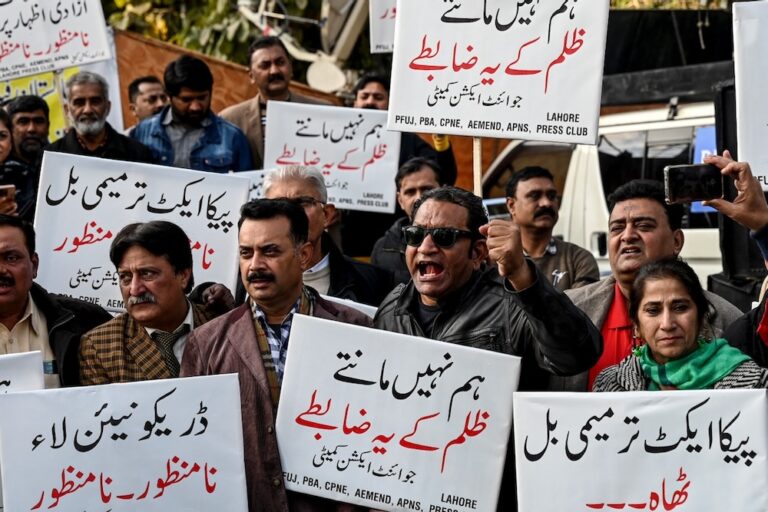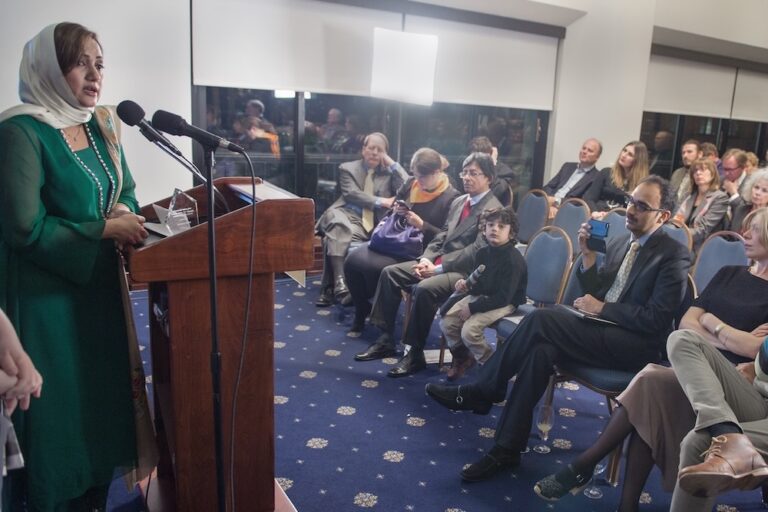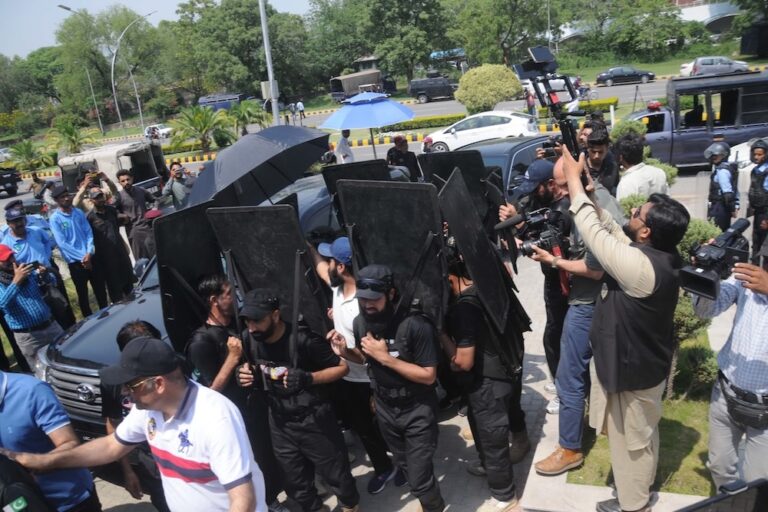(RSF/IFEX) – Reporters Without Borders condemned Taliban reprisals against the press in North Waziristan in response to an inaccurate report carried by several national and international media. A journalist’s son was kidnapped for several hours, media offices were attacked, copies of newspapers were burned and a two-day ban on newspaper distribution was proclaimed. “The Taliban […]
(RSF/IFEX) – Reporters Without Borders condemned Taliban reprisals against the press in North Waziristan in response to an inaccurate report carried by several national and international media. A journalist’s son was kidnapped for several hours, media offices were attacked, copies of newspapers were burned and a two-day ban on newspaper distribution was proclaimed.
“The Taliban reaction to an erroneous news report was out of all proportion,” the press freedom organisation said. “Caught in the crossfire between jihadists, the security forces and tribal chiefs, journalists work in extremely difficult conditions in the tribal areas. These incidents, combined with the detention of two Pakistani journalists by Afghan Taliban, highlight the dangers for reporters in this region.”
On 28 November 2006, Taliban stormed into the office of Haji Pazir, a journalist working for Urdu and English-language media, in Miranshah (in North Waziristan), kidnapped his son and interrogated Pazir in an attempt to find out who was responsible for a false report about the death of several jihadist militants in the area. They also took copies of newspapers and burned them in the centre of the town. Pazir’s son was freed a few hours later.
“The Taliban were questioning all the journalists and threatening them to get them to reveal who wrote this false report,” Pazir told Reporters Without Borders.
A report posted on 27 November on the BBC World Service’s Urdu-language website that was picked up by the Pakistani news agency Online and several Pakistani newspapers wrongly described the death of four Taliban as the first serious incident since the signing of an accord between the authorities and the Islamists. The BBC’s Urdu-language service apologised later, blaming the mistake on a technical problem.
The Taliban subsequently announced a two-day ban on the sale of newspapers in the North Waziristan tribal area. “The final decision will be up to our Shura [council],” Taliban spokesman Abdullah Farhad told journalists in Peshawar.
Two Pakistani journalists, Syed Saleem Shahzad of the daily “The Star” and “Asia Times Online”, and Quetta-based freelancer Qamar Yousafzai were freed after having been detained by Taliban in Afghanistan. They were held for five days in the Afghan province of Helmand for entering the province without Taliban permission. They were able to contact their families on 28 November from the border town of Chaman (in Balochistan province) following their release on 26 November. They were expected to return to Karachi soon.


